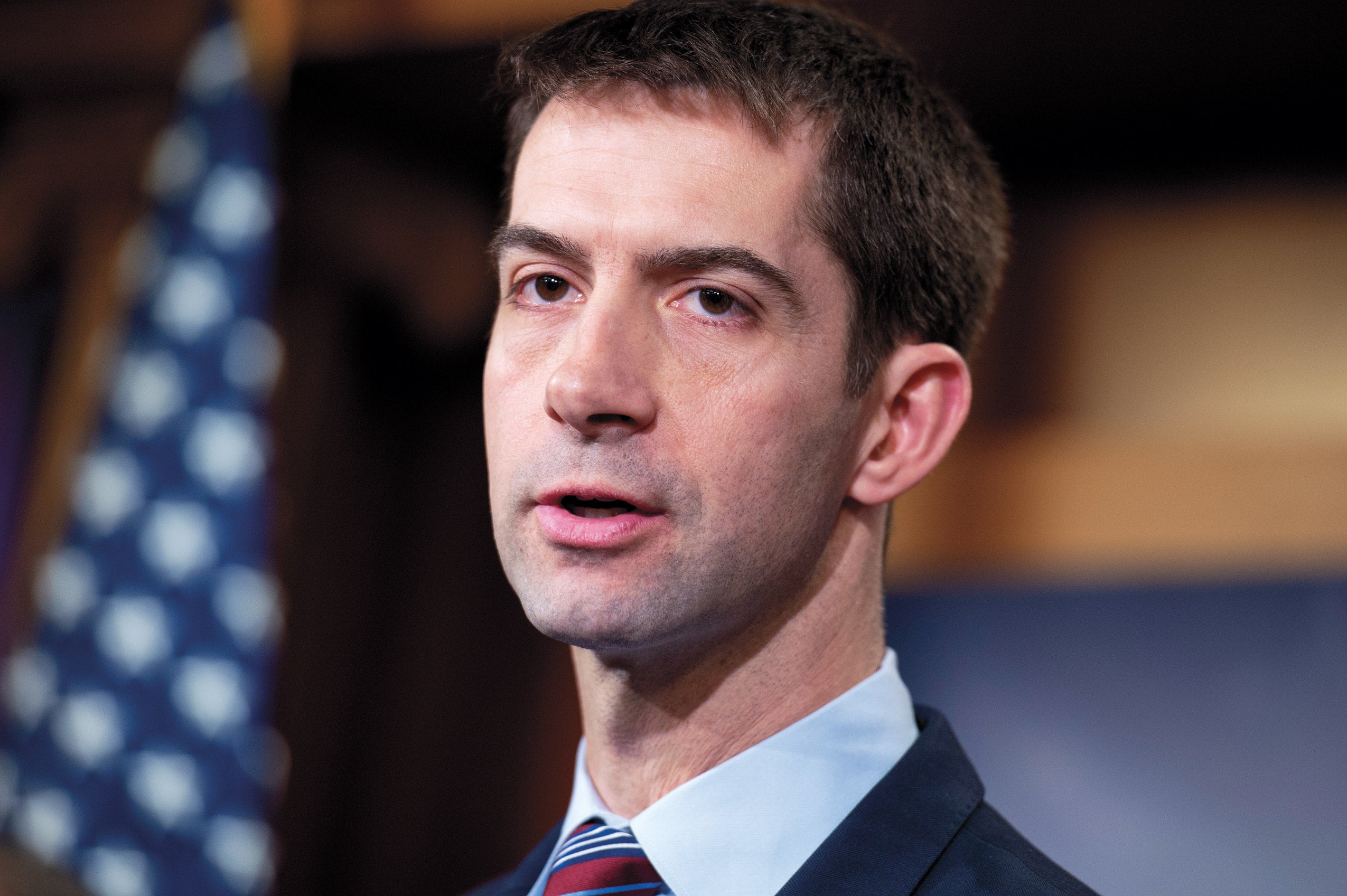On the morning of the 9/11 attacks, Tom Cotton ’02 was a typical Harvard Law 3L with a clerkship and law firm job in hand and notions of being a prosecutor or perhaps following his father into the military someday. But as he watched coverage of the attacks from the Harkness Commons, Cotton resolved to serve as an infantryman in the Army.
He started an intensive regimen of exercise and reading military history before beginning his clerkship with a federal Circuit Court judge. At the end of his clerkship, he walked into a military recruiter’s office in Houston in the spring of 2003 to sign up, ignoring the suggestion that he become a military lawyer.
Cotton went on to lead an infantry platoon in Iraq, narrowly escaping injury when an IED destroyed his Humvee in Baghdad in 2006. While in Baghdad, he read a New York Times story revealing a secret terrorist-finance tracking program. He wrote an angry letter to the editor saying the paper’s editors should be jailed on espionage charges.
Cotton became a conservative cause célèbre after the Power Line blog published the letter. “Here was a guy leading his men on missions in Baghdad,” said John Hinderaker ’74, a Minnesota attorney and Power Line co-founder. “What made the letter so striking was that it was just so well written and it was very forceful.”
Cotton served at military funerals at Arlington National Cemetery as part of the ceremonial Old Guard and volunteered for a tour of duty in Afghanistan before leaving the Army in 2009. Three years later, he ran successfully for the congressional seat representing the district where he grew up on a cattle farm in Dardanelle, Arkansas.
The sixth-generation Arkansan, nearly six and a half feet tall, remembers kicking bales of hay out of his father’s truck when he “was barely bigger than those bales.” As an undergraduate at Harvard College, Cotton played a year of basketball and discovered “political philosophy as a way of life,” as he wrote in his college thesis.
He spent a year at the conservative Claremont Institute in California before enrolling at Harvard Law, where Marvin Ammori ’03 remembers him hanging a picture of Winston Churchill on the door of his dorm room.
“There was no secret that he was interested in politics,” said Ammori, whose vastly different political views didn’t get in the way of their friendship. “We debated politics and philosophy, and people would ask, ‘How are you friends with that guy?’ Conservatives probably asked him the same thing.”
For Cotton, a highlight of law school was reading de Tocqueville’s “Democracy in America” as part of a weekly study group in Professor Mary Ann Glendon’s office. Glendon remembered Cotton as “eloquent but folksy, a sympathetic but critical reader and bristling with insights into American politics.”
“It was evident that he would go far,” Glendon said.
Cotton’s first term in the House, where he earned a reputation as a stalwart conservative, was not even half over when he decided to challenge the state’s incumbent Senate Democrat, Mark Pryor. Cotton emerged the winner last November after an expensive campaign pitting conservative groups such as the Club for Growth against the Democratic establishment, including former President Bill Clinton.
In the course of his Senate campaign, he traded nasty fundraising letters with Elizabeth Warren, who taught his first-year Contracts class 13 years before becoming the Democratic senator from Massachusetts.
Cotton said he chatted amiably with Warren on the Senate floor in January on the day of his swearing in. “She gave me a big hug and introduced me as her student,” he said. “To be fair, she was a better professor than I was a student.”
Cotton made national headlines nine weeks after taking office, when he convinced most of his Senate Republican colleagues to sign a letter to top Iranian leaders warning that any nuclear deal signed by President Barack Obama ’91 may not have any effect beyond his presidency.
The Wall Street Journal called the letter “a kind of Senate coming-out party” for Cotton and predicted, “Whatever the letter’s ripple effects, it certainly won’t represent the last Washington will hear from Tom Cotton [on] foreign policy.”
